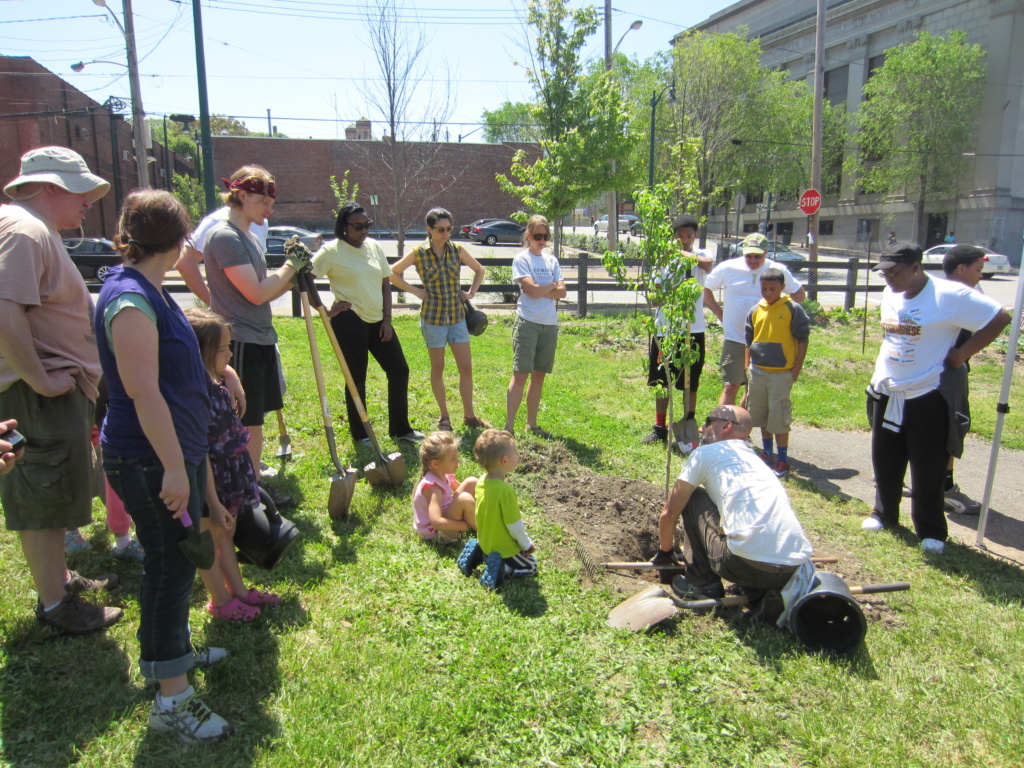Community gardens are more than just the soil and plants – a successful community garden is really a network of relationships that may include neighbors, relatives, local businesses, churches and schools, civic government, and more.
Start from what you have, rather than what you lack. The Asset-Based Community Development Institute website: https://resources.depaul.edu/abcd-institute/Pages/default.aspx
Non-Profit Partner
Having a non-profit (501(c)3 tax status) partner is enormously helpful for tax-exempt purchasing, providing a tax write-off for donations, umbrella liability coverage, and possibly even assuming ownership of the community garden land. Please note that the process for starting a non-profit takes at least one year, and lots of paper-work, so it’s best to link up with an existing non-profit rather than try to start one yourself.

Donations
Contributions of land, tools, seeds, fencing, soil improvements or money are all vital to a successful community garden. Some community gardens can provide most of their provisions through fees charged to the membership; but for many, garden donations are essential. Individuals, churches, schools, citizens groups, private businesses, local parks and recreation departments are all potential donors.
If you have a personal connection to a national business, you may be able to request donations or other support. However, community gardens generally have much more success approaching businesses based in their own neighborhood or municipality. Don’t forget to acknowledge all donations, no matter how small, with thank you notes, signage, or gifts.
Volunteer Organizations
Think about big projects you might have in the future. If it’s possible to pick out a date and plan for that project, there are many organization that would love to help by connecting you to pools of volunteers. Sources of volunteers include: churches, Pittsburgh Cares, university volunteer groups, local high school students who need to complete volunteer hours.
Insurance
A non-profit or for-profit partner can often “umbrella” a community garden under an existing insurance policy. This can significantly reduce the expense of an insurance policy. For more information, check out this page on garden insurance.
